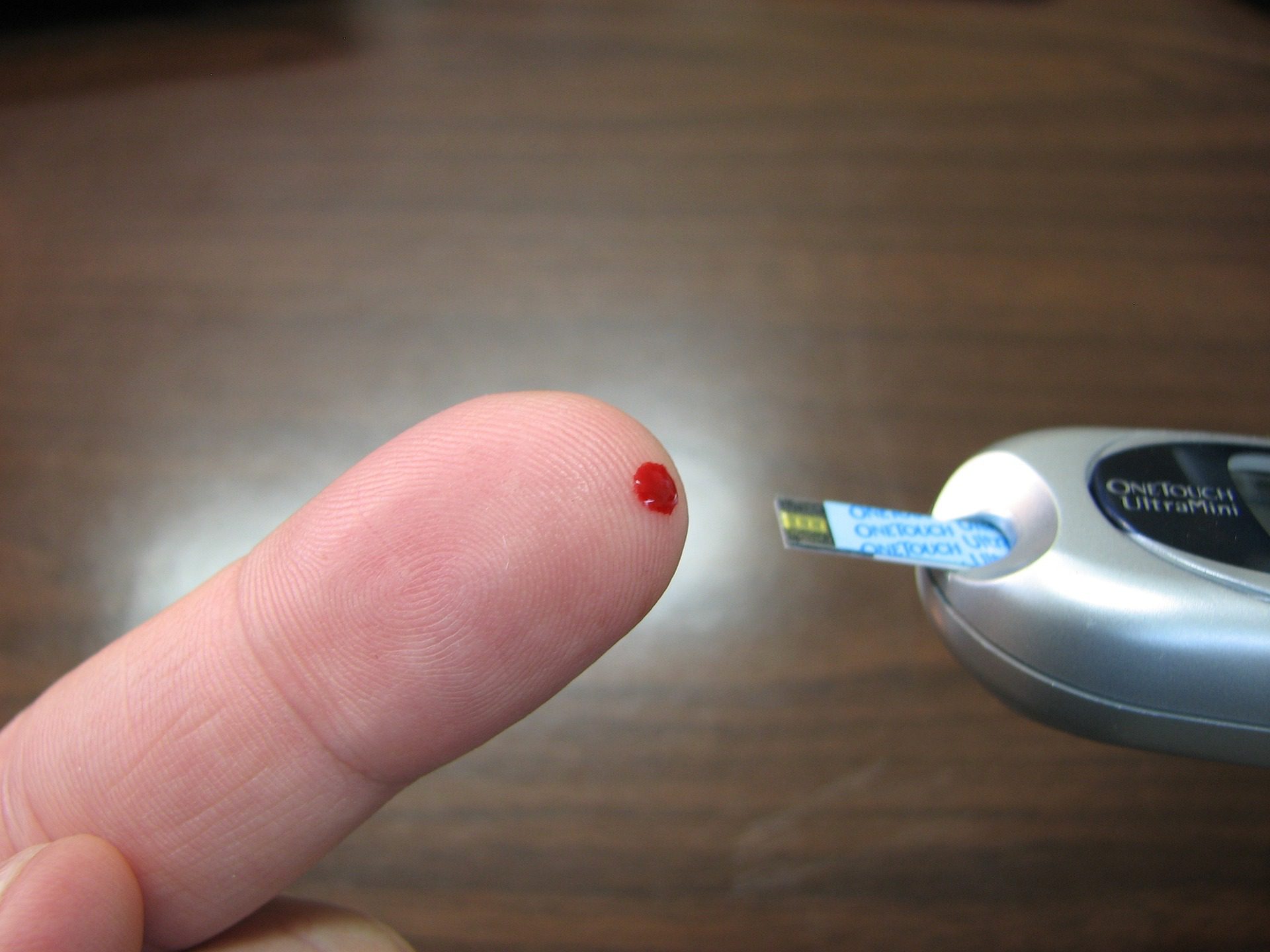
Can High Blood Sugar Cause Headaches? Discover the Surprising Connection
admin
- 0
- 13
High blood sugar can cause headaches due to the impact it has on blood vessels and nerve function. When blood sugar levels are elevated, it affects the way blood vessels dilate and contract, potentially leading to head pain.

Table of Contents
ToggleUnderstanding The Link Between High Blood Sugar And Headaches
High blood sugar, also known as hyperglycemia, is a condition that affects many people, especially those with diabetes. While it is well-known that high blood sugar can lead to various complications, such as heart disease and nerve damage, its connection to headaches is often overlooked.
In this section, we will explore the link between high blood sugar and headaches, examining the effect of high blood sugar on blood vessels, the role of insulin in headache development, and the impact of blood sugar levels on headaches.
The Effect Of High Blood Sugar On Blood Vessels
- High blood sugar levels can cause damage to the blood vessels throughout the body, including those in the brain.
- This damage can result in the narrowing or constriction of blood vessels, leading to reduced blood flow and oxygen supply to the brain.
- The restricted blood flow can trigger headaches and contribute to their intensity and frequency.
The Role Of Insulin In Headache Development
- Insulin is a hormone that helps regulate blood sugar levels by allowing glucose to enter cells for energy.
- When blood sugar levels are consistently high, the body may become resistant to the effects of insulin.
- This insulin resistance can lead to increased inflammation and the release of substances that can trigger headaches.
Investigating The Impact Of Blood Sugar Levels On Headaches
- Studies have shown that individuals with diabetes or prediabetes are more likely to experience headaches, especially migraines.
- Fluctuations in blood sugar levels, both high and low, have been associated with increased headache frequency and severity.
- Maintaining stable blood sugar levels through proper diabetes management can help alleviate headaches and reduce the risk of their occurrence.
Understanding the link between high blood sugar and headaches can help individuals with diabetes or prediabetes manage their condition more effectively. By prioritizing stable blood sugar levels and implementing lifestyle changes, such as dietary modifications and regular exercise, it is possible to reduce the frequency and intensity of headaches.
It is essential to work closely with healthcare professionals to develop a personalized treatment plan that addresses both high blood sugar and headache symptoms.
How High Blood Sugar Triggers Migraine Attacks
Exploring The Relationship Between Glycemic Control And Migraines
Maintaining good glycemic control is crucial for individuals with diabetes, not only for managing blood sugar levels but also for preventing various complications. One surprising connection that researchers have discovered is the relationship between high blood sugar and migraines. Let’s delve into the mechanisms behind this intriguing connection.
- When blood sugar levels rise, it can lead to inflammation in the blood vessels and nerves, which in turn, triggers migraines.
- Studies have shown that individuals with poorly controlled blood sugar levels are more likely to experience migraines compared to those with well-managed diabetes.
- The fluctuations in blood sugar levels can cause changes in cerebral blood flow, which can contribute to the onset of migraines.
- High blood sugar levels also increase oxidative stress in the body, which is known to play a role in triggering migraines.
The Influence Of Inflammation And Oxidative Stress On Headaches
Inflammation and oxidative stress are two factors that can significantly impact the occurrence and intensity of headaches, including migraines. Let’s examine their influence in more detail:
- Inflammation can cause blood vessels to constrict and become more sensitive, leading to throbbing headaches.
- High levels of oxidative stress can disrupt various physiological processes in the body, including causing changes in the brain that contribute to migraines.
- Both inflammation and oxidative stress activate pain receptors, amplifying the headache sensation.
- Chronic inflammation and oxidative stress can also increase the frequency and duration of migraine attacks.
Unraveling The Mechanisms Behind High Blood Sugar-Induced Migraines
To better understand the link between high blood sugar and migraines, researchers are investigating the intricate mechanisms involved. Here are some key insights:
- High blood sugar levels can trigger an inflammatory response, contributing to the development of migraines.
- Inflammation affects the trigeminal nerve, a major player in migraines, resulting in pain signals being transmitted to the brain.
- Oxidative stress, caused by high blood sugar, can lead to mitochondrial dysfunction, which further aggravates migraines.
- Changes in neurotransmitters and the release of certain substances due to elevated blood sugar can disrupt pain regulation, making individuals more susceptible to migraines.
Understanding how high blood sugar impacts migraines can help individuals with diabetes manage their condition more effectively while also addressing their headache symptoms. By maintaining optimal glycemic control and adopting lifestyle modifications to reduce inflammation and oxidative stress, individuals can potentially minimize the frequency and intensity of migraine attacks.
Managing High Blood Sugar To Alleviate Headaches
Living with high blood sugar can be a challenging experience, often accompanied by various symptoms such as headaches. If you’re wondering whether there is a connection between high blood sugar and headaches, the answer is yes. High blood sugar levels can indeed trigger headaches and migraines in some individuals.
However, the good news is that by effectively managing your blood sugar levels, you can alleviate the frequency and intensity of these headaches. Let’s explore some strategies for managing high blood sugar to alleviate headaches.
Dietary And Lifestyle Modifications For Blood Sugar Regulation
Making dietary and lifestyle modifications is crucial in controlling high blood sugar levels and reducing the likelihood of experiencing headaches. Consider implementing the following changes:
- Limit your intake of sugary and processed foods: Opt for whole, unprocessed foods, such as fruits, vegetables, lean proteins, and whole grains.
- Choose low-glycemic index foods: These foods have a slower impact on blood sugar levels, helping to maintain stable glucose levels throughout the day.
- Control portion sizes: Be mindful of portion sizes to avoid consuming excess carbohydrates, which can result in blood sugar spikes.
- Stay hydrated: Drinking an adequate amount of water can help regulate blood sugar levels and prevent dehydration, which can contribute to headaches.
- Engage in regular exercise: Physical activity helps increase insulin sensitivity and improves blood sugar control.
Medications And Treatments For High Blood Sugar And Headache Relief
In addition to lifestyle changes, certain medications and treatments can aid in controlling high blood sugar levels and providing relief from associated headaches. Consider the following options:
- Diabetes medications: If you have diabetes, your healthcare provider may prescribe medications to help regulate your blood sugar levels and reduce the occurrence of headaches.
- Pain relievers: Over-the-counter pain medications, such as acetaminophen or ibuprofen, can be effective in alleviating headache symptoms. However, consult your healthcare provider before taking any medication.
- Migraine-specific medications: If you experience migraines, your doctor may prescribe specific medications designed to address the underlying causes of migraines and provide relief.
Integrative Approaches For Controlling Blood Sugar And Headaches
In addition to dietary modifications and medications, integrative approaches can be beneficial in managing high blood sugar levels and reducing headache frequency. Consider the following integrative approaches:
- Stress management techniques: Stress can impact blood sugar levels and trigger headaches. Incorporating stress-reducing activities like meditation, deep breathing exercises, or yoga into your routine can help regulate blood sugar levels and alleviate headaches.
- Herbal remedies: Some herbs, such as cinnamon and fenugreek, may help regulate blood sugar levels. However, consult with a knowledgeable healthcare professional before incorporating any herbal remedy into your routine.
- Acupuncture: This traditional chinese medicine practice involves the insertion of thin needles into specific points on the body. Acupuncture has shown promise in reducing blood sugar levels and alleviating headache symptoms for some individuals.
By implementing dietary and lifestyle modifications, considering appropriate medications and treatments, and exploring integrative approaches, you can effectively manage high blood sugar levels and alleviate the accompanying headaches. Remember, it’s crucial to consult with a healthcare professional to develop a comprehensive plan that suits your individual needs.
With consistent effort and a tailored approach, you can regain control over your blood sugar levels and live a life with fewer headaches.
Frequently Asked Questions Of Can High Blood Sugar Cause Headaches
Can High Blood Sugar Cause Headaches?
Yes, high blood sugar levels can cause headaches. When blood sugar rises, it leads to changes in blood vessels, causing inflammation and nerve damage, resulting in headaches. Dehydration and imbalances in electrolytes due to high blood sugar can also trigger headaches.
What Other Symptoms Can High Blood Sugar Cause?
High blood sugar can cause a range of symptoms, such as increased thirst, frequent urination, fatigue, blurred vision, unexplained weight loss, slow wound healing, and frequent infections. It can also lead to complications like nerve damage, kidney problems, and cardiovascular diseases if left untreated.
How Can I Prevent High Blood Sugar-Related Headaches?
To prevent high blood sugar-related headaches, it is important to maintain stable blood sugar levels. This can be done by following a healthy diet, exercising regularly, monitoring blood sugar levels, taking medications as prescribed, and managing stress. Consulting with a healthcare professional is also crucial for personalized guidance.
Are There Any Natural Remedies For High Blood Sugar-Related Headaches?
While natural remedies may help alleviate headaches caused by high blood sugar, it is important to consult a healthcare professional for proper guidance. Drinking plenty of water, managing stress, practicing relaxation techniques, getting enough sleep, and consuming foods rich in magnesium may provide some relief from headaches associated with high blood sugar.
When Should I Seek Medical Attention For High Blood Sugar-Related Headaches?
If you experience severe or persistent headaches along with other symptoms of high blood sugar like excessive thirst, frequent urination, or vision changes, it’s important to seek medical attention. A healthcare professional can assess your condition, provide appropriate treatment, and help manage your blood sugar levels effectively.
Conclusion
To summarize, it is evident that high blood sugar levels can indeed cause headaches. When glucose remains elevated, it affects the blood vessels throughout the body, leading to possible inflammation and constriction, ultimately triggering discomfort in the head. By maintaining good blood sugar control through proper diet, exercise, and medication, individuals with diabetes can potentially reduce the frequency and intensity of their headaches.
Moreover, regular check-ups with healthcare professionals are crucial to monitor blood sugar levels and address any associated complications promptly. It is essential to remember that while headaches can be a symptom of high blood sugar, they can also arise from various other factors.
Therefore, if you experience recurring headaches, it is recommended to consult a healthcare provider for a thorough evaluation and diagnosis. Prioritizing overall health and well-being is the key to managing both high blood sugar and related headaches effectively.



